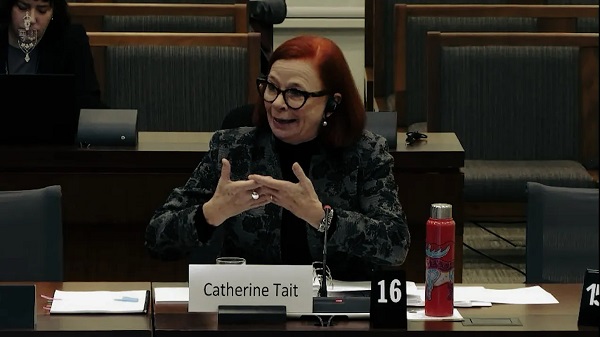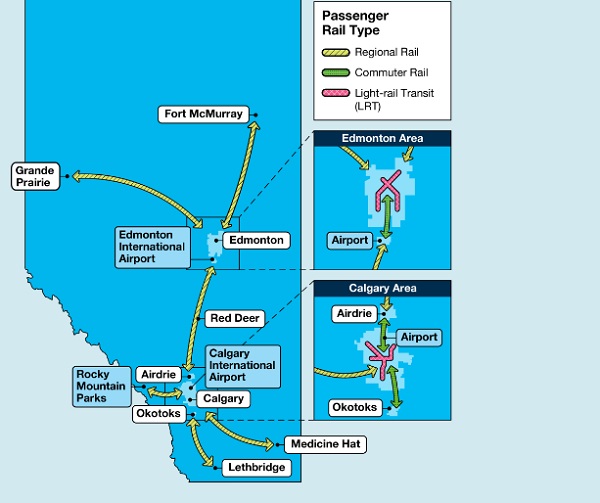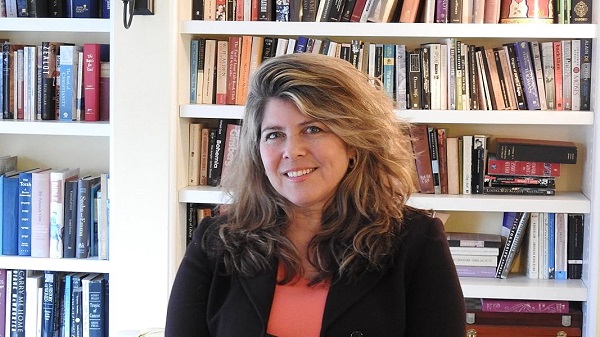Alberta
Taxpayers: Alberta drivers need a gas tax break for summer
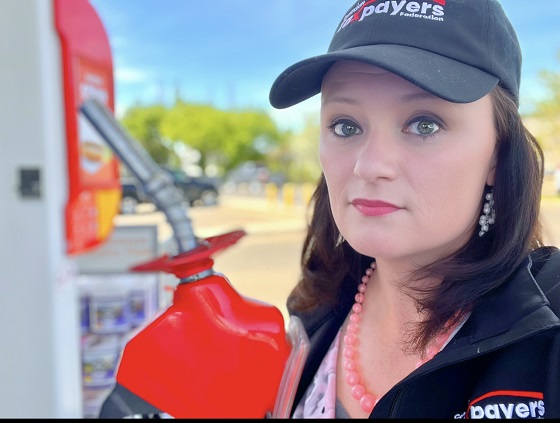
From the Canadian Taxpayers Federation
Author: Kris Sims
“Alberta families packing up the minivan to go visit the grandparents in Manitoba will be shocked to see a much lower gas price over there, thanks to that NDP government’s lower fuel taxes”
The Canadian Taxpayers Federation is urging the Alberta government to give drivers a break on fuel taxes as the summer road trip season kicks off.
“Alberta families packing up the minivan to go visit the grandparents in Manitoba will be shocked to see a much lower gas price over there, thanks to that NDP government’s lower fuel taxes,” said Kris Sims, CTF Alberta Director. “Premier Danielle Smith did the right thing when she suspended the Alberta fuel tax for a year. It saved families so much money and it would be a good thing for her to do that again for the summer.”
In January 2023, the Alberta government fully suspended the provincial fuel tax for a year, saving drivers 13 cents per litre of gasoline and diesel.
On average, that tax suspension saved Alberta drivers about $10 filling up a minivan and about $15 filling up a pickup truck.
On April 1, 2024, the Alberta government hiked the tax back up to 13 cents per litre, on the same day Prime Minister Justin Trudeau increased the federal carbon tax to 17 cents per litre of gasoline and 21 cents per litre of diesel.
Manitoba NDP Premier Wab Kinew fully suspended his province’s 15 cent per litre fuel tax on Jan. 1, 2024. He has now extended it to at least September.
Ontario PC Premier Doug Ford has kept his provincial fuel tax partially suspended, saving five cents per litre for more than two years.
Alberta’s fiscal update is expected to be released by the Alberta government soon, a time that often includes updates on affordability actions by the government, including tax relief.
“Albertans are still waiting for their provincial income tax cut and they are paying the full price at the pump for the provincial fuel tax, so it’s tough for them to feel the Albera Advantage right about now,” said Sims. “The Alberta government needs to make good on its promise of lower taxes and drivers should be given lower fuel taxes at the pumps this summer.”
Alberta
Parents in every province—not just Alberta—deserve as much school choice as possible

From the Fraser Institute
Not only does Alberta have a fully funded separate (Catholic) school system, it also provides between 60 and 70 per cent operational funding to accredited independent schools. In addition, Alberta is the only province in Canada to allow fully funded charter schools. And Alberta subsidizes homeschooling parents.
This week, the Smith government in Alberta will likely pass Bill 27, which requires schools to get signed permission from parents or guardians prior to any lessons on human sexuality, gender identity or sexual orientation.
It’s a sensible move. The government is proactively ensuring that students are in these classes because their parents want them there. Given the sensitive nature of these topics, for everyone’s sake it makes sense to ensure parental buy-in at the outset.
Unfortunately, many school trustees don’t agree. A recent resolution passed by the Alberta School Boards Association (ASBA) calls on the Smith government to maintain the status quo where parents are assumed to have opted in to these lessons unless they contact the school and opt their children out. Apparently, the ASBA thinks parents can’t be trusted to make the right decisions for their children on this issue.
This ASBA resolution is, in fact, a good example of the reflexive opposition by government school trustees to parental rights. They don’t want parents to take control of their children’s education, especially in sensitive areas. Fortunately, the Alberta government rebuffed ASBA’s demands and this attempt to abolish Bill 27 will likely fall on deaf ears.
However, there’s an even better safeguard available to Alberta parents—school choice. Out of all Canadian provinces, Alberta offers the most school choice. Not only does Alberta have a fully funded separate (Catholic) school system, it also provides between 60 and 70 per cent operational funding to accredited independent schools. In addition, Alberta is the only province in Canada to allow fully funded charter schools. And Alberta subsidizes homeschooling parents. Simply put, parents who are dissatisfied with the government school system have plenty of options—more than parents in any other province. This means Alberta parents can vote with their feet.
Things are quite different in other parts of the country. For example, Ontario and the four Atlantic provinces do not allow any provincial funding to follow students to independent schools. In other words, parents in these provinces who choose an independent school must pay the full cost themselves—while still paying taxes that fund government schools. And no province other than Alberta allows charter schools.
This is why it’s important to give parents as much school choice as possible. Given the tendency of government school boards to remove choices from parents, it’s important that all parents, including those with limited means, have other options available for their children.
Imagine if the owners of a large grocery store tried to impose their dietary preferences by removing all meat products and telling customers that the only way they could purchase meat is to make a special order. What would happen in that scenario? It depends on what other options are available. If this was the only grocery store in the community, customers would have no choice but to comply. However, if there were other stores, customers could simply shop elsewhere. Choice empowers people and limits the ability of one company to limit the choices of people who live in the community.
Think of government school boards as a monopolistic service provider like a grocery store. They often do everything possible to prevent parents from going anywhere else for their children’s education. Trusting them to do what’s best for parents and children is like assuming that the owners of a grocery store would always put the interests of their customers first and not their own self-interest. Monopolies are bad in the private sector and they’re bad in the education sector, too.
Clearly, it makes sense to require schools to get proactive consent from parents. This ensures maximum buy-in from parents for whatever courses their children take. It’s also important that Alberta remains a bastion of school choice. By making it easier for parents to choose from a variety of education options, Alberta puts power in the hands of parents, exactly where it belongs. Parents in other provinces should want that same power, too.
Alberta
Alberta government’s fiscal update underscores need for rainy-day account

From the Fraser Institute
By Tegan Hill
According to the Smith government’s recent fiscal update, the government’s $2.9 billion projected budget surplus has increased to a $4.6 budget surplus in 2024/25 mainly due to higher-than-expected resource revenue. But the resource boom that fuels Alberta’s fiscal fortunes could end at any moment and pile more government debt on the backs of Albertans.
Resource revenue, fuelled by commodity prices (including oil and gas), is inherently volatile. For perspective, in just the last decade, the Alberta government’s annual resource revenue has been as low as $2.8 billion (2015/16) and accounted for just 6.5 per cent of total government revenue. In contrast, according to the Smith government’s fiscal update, projected resource revenue is $20.3 billion this fiscal year and will account for more than a quarter (26.1 per cent) of total government revenue.
But here’s the problem.
Successive Alberta governments—including the Smith government—have included nearly all resource revenue in the budget. In times of relatively high resource revenue, such as we’re currently experiencing, the government typically enjoys surpluses and, flush with cash, increases spending. But when resource revenues decline, the province’s finances turn to deficits.
The last time this happened Alberta ran nearly uninterrupted deficits from 2008/09 to 2020/21 while the province’s net financial position deteriorated by nearly $95 billion. As a result, Albertans went from paying $58 per person on annual provincial government debt interest costs to nearly $600 per person.
So how can the Smith government avoid the same fate as past Alberta governments who wallowed in red ink when the boom-and-bust cycle inevitably turned to bust?
The answer is simple—save during good times to help avoid deficits during bad times. The provincial government should determine a stable amount of resource revenue to be included in the budget annually and deposit any resource revenue above that amount automatically in a rainy-day account to be withdrawn in years when resource revenue falls below that stable amount.
This wouldn’t be Alberta’s first rainy-day account. In fact, the Alberta Sustainability Fund (ASF), established in 2003, was intended to operate this way. A major problem with the ASF, however, was that it was based in statutory law, which meant the Alberta government could unilaterally change the rules governing the fund. Consequently, the stable amount was routinely increased and by 2007 nearly all resource revenue was used for annual spending. The ASF was eventually drained and eliminated entirely in 2013. This time, the government should make the fund’s rules constitutional, which would help ensure it’s sustained over time.
Put simply, funds in a resurrected ASF will provide stability in the future by mitigating the impact of cyclical declines on the budget over the long term.
In the recent fiscal update, the Alberta government continues to risk relying on relatively high resource revenue to balance the budget. To avoid deficits and truly stabilize provincial finances for the future, the Smith government should reintroduce a rainy-day account.
Tegan Hill
Director, Alberta Policy, Fraser Institute
-
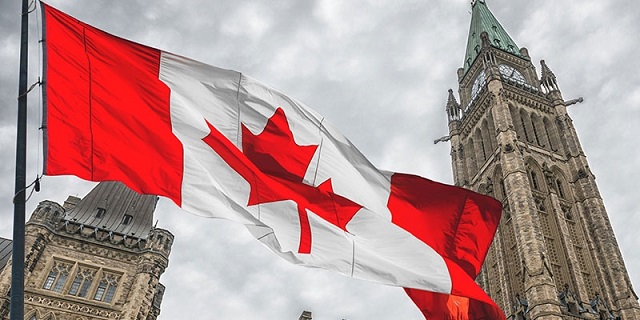
 David Clinton2 days ago
David Clinton2 days agoWhat Happens When Ministries Go Rogue?
-
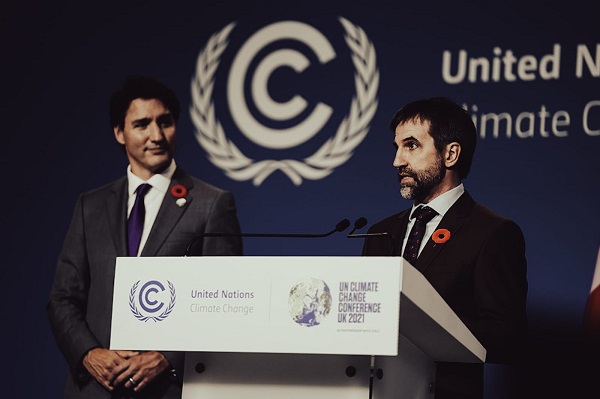
 Automotive2 days ago
Automotive2 days agoNorthvolt bankruptcy ominous sign for politicians’ EV gamble
-

 Crime2 days ago
Crime2 days agoWhat did Canada Ever Do to Draw Trump Tariff on Immigration, You Ask? Plenty
-
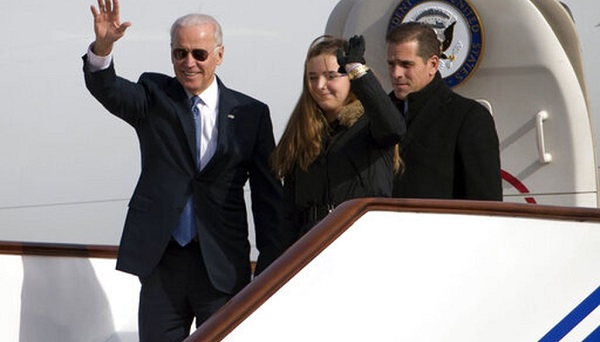
 Daily Caller2 days ago
Daily Caller2 days agoCNN’s Scott Jennings Says History Will Remember Biden As ‘Complete And Total Disgrace’ Over Hunter Pardoning
-
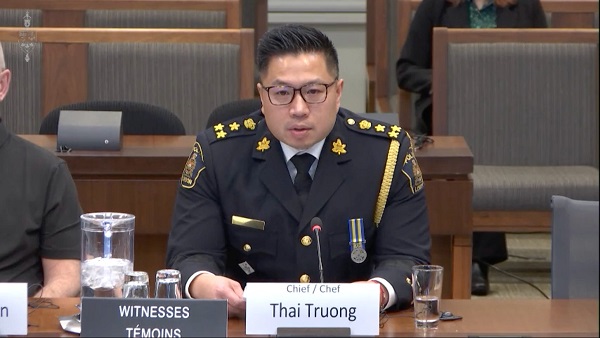
 Addictions2 days ago
Addictions2 days agoLondon Police Chief warns parliament about “safer supply” diversion
-

 Health2 days ago
Health2 days agoFauci admitted to RFK Jr. that none of 72 mandatory vaccines for children has ever been safety tested
-

 Automotive2 days ago
Automotive2 days agoElectric-vehicle sales show modest spark
-

 Daily Caller2 days ago
Daily Caller2 days ago‘Dark Day’: Another Western Country Backs Doctor-Assisted Suicide, Opens Door To ‘Murder Of Old And Sick’




